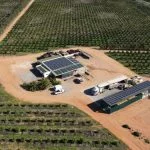Consequences
Agreement on energy price hike
Effects on the agriculture sector
The agriculture sector in particular is concerned about the recent plans. This is due to the substantial increase in energy prices, which comes on top of the already increased prices over the past few years. The agriculture sector is asking for support from the government to continue to guarantee the supply of food to supermarkets. Moreover, the agriculture sector is already having to take hefty hits due to the continuous load shedding faced in South Africa.
In the meantime, the sector is facing Stage 6 of load shedding, which means 5000 MW to 6000 MW of power must be shed in order to prevent the national grid from collapsing. Many small and medium-sized farms are about to lose a large part of their crops and harvest, which is a direct consequence of load shedding. This is because of the irrigation that requires electricity, and load shedding which is causing large intervals of no-power. A well known issue to crop irrigation.
Product chain
Problems within the product chain
The problems faced by farmers are currently working their way down the entire chain. For example, consumers are seeing their products increase in price. According to Christo van der Rheede, however, farmers see little to nothing from those price increases. Not only is this due to load shedding or a rise in diesel costs, but the price increases farmers face cannot be passed on to exports. The European market simply refuses to pay more for the same product, leaving farmers in South Africa facing lost profits.
Farmers therefore see nothing of the rising prices that consumers – who are also already facing their own rising prices – pay in the supermarket at the end of the day. Although commercial companies have stepped up their game recently, there are still many challenges to overcome. The biggest challenge won’t be delivering the products, but keeping them affordable for the people of South Africa.



